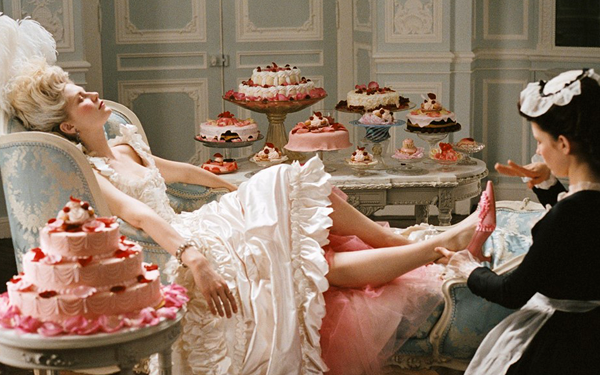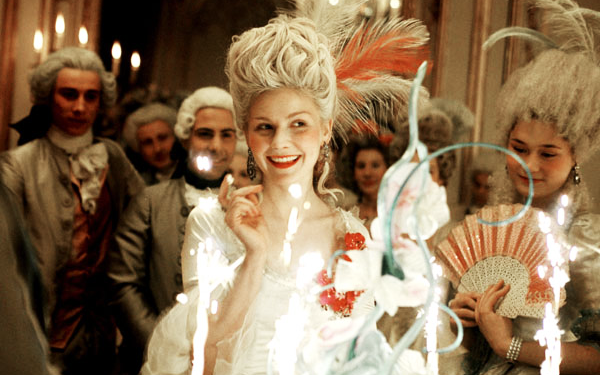
The film really focused on Marie Antoinette, portrayed well by Kirsten Dunst. If one has no prior knowledge of French history, the film (though historically inaccurate) portrays the queen with a sense of humanity. She wasn't naive, nor was she cunning or speculative. The biggest fault that she could have had was that she was sheltered, and basked in her own world without bothering to seek out her constituents. Even the film could argue that her selfishness wasn't her fault. She had a husband who ignored her advances, a court who does nothing but whisper about her incompetence, a mother and adviser who endlessly nag her about court behavior and duty.
The film took liberties at historical events that happened during the time. It twisted events in a way that it would be viewed on her point, and an explanation would be given that instantly addresses the issue. This was something I don't mind at a film perspective, because it challenges the writer to find a plausible reason for an event from the non-historian point of view. Granted, a reality where the 'villain' is in denial of events is terrible, but from a creative standpoint, it's an idea I am open to.


This was a film where every time I re-watch it, I see something new and was able to enjoy it even more as the first time I saw it. I was filled with so much dread over what it was going to be. I ended up thinking it was a great film but the anxiety I had over its reception at Cannes months earlier made me unable to enjoy the film. Now, I think it's one of Sofia's definitive works as it's really an offbeat take on the period film genre while a lot of the anachronistic musical choices I think makes more sense into what Coppola was doing.
ReplyDeleteI still haven't seen this one of hers but I've seen pretty much everything else she's done. I need to get on it.
ReplyDelete